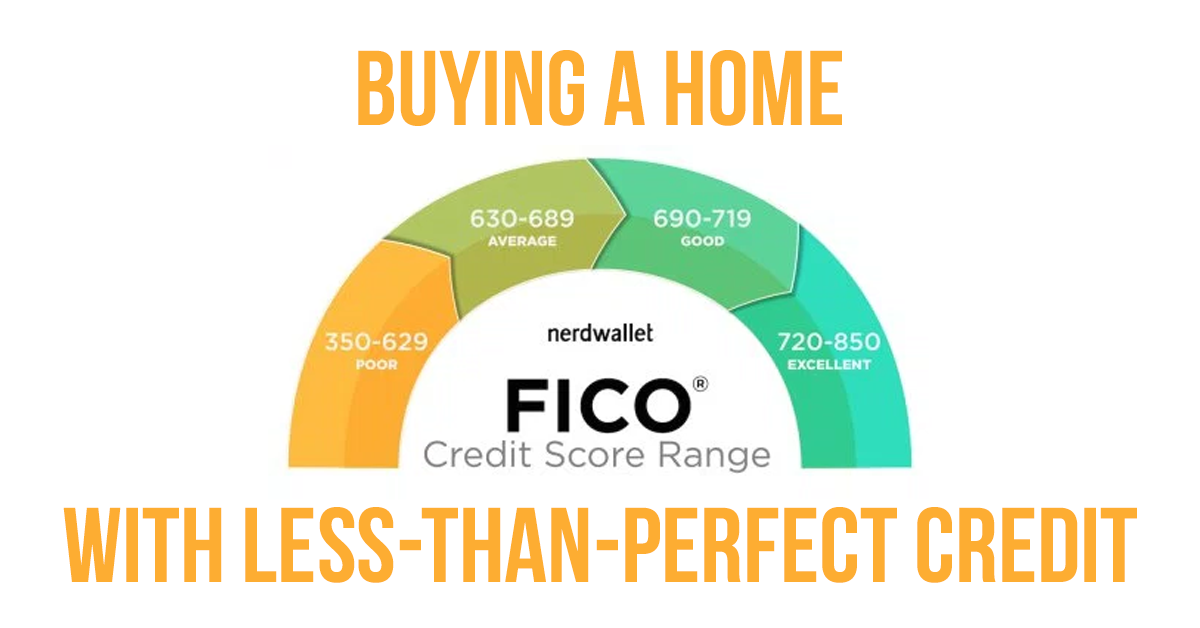How to Buy a Home with Less-Than-Perfect Credit
Buying a home requires having a healthy amount of cash on hand, a solid payment history over at least the past year or two, and a steady income. But you don’t need a perfect credit history. While higher credit scores earn more favorable loan terms, it is still possible for someone with “low” or “average” credit to buy a home.
Getting the government involved
With less-than-perfect credit, you should probably be looking for an FHA guaranteed loan. The Federal Housing Administration is a government agency that guarantees loans provided by authorized lenders. With the FHA backstopping your mortgage, you’ll gain a bit of flexibility when it comes to how much down payment you’ll need. But such a concession comes at a cost.
By making less than the standard 20% down payment, you’ll be required to buy mortgage insurance — not to protect you, but the lender. It’s a pretty significant hit: 1.75% upfront. That’s $1,750 for every $100,000 you borrow. And you’ll likely have to pay ongoing monthly premiums at an annual rate of 0.45% to 1.05%, depending on the amount of your down payment and the length of your loan.
You may want to consider comparing those additional costs to using your financial resources to repair your credit and saving for a bigger down payment instead.
Know your score
No doubt, as a potential homebuyer, it’s important to reduce debt, accumulate as much cash as you can and review your credit history. Knowing your credit score is an essential step, too.
While FHA loans have traditionally been the go-to option for borrowers with poor credit, the bar has been raised a bit in recent years. While it is possible to still qualify with a credit score under 620, those borrowers represent a very thin sliver of total loans — less than 5%. More than half of FHA loans (53%) in 2014 were made to consumers with scores between 620 and 679, with an average score of 680.
Still, the FHA particularly caters to first-time homebuyers, which represented more than 81% of loans backed by the agency last year.
How much home can you buy?
Deciding how much home you can purchase is a matter of knowing what you can reasonably afford. And of course, your lender will determine the amount of the loan you will qualify for. But with an FHA loan, there are other loan limits to be aware of.
Maximum loan values that can qualify for FHA assistance vary by location and range from $271,050 to $625,500. The agency calculates local loan limits on the housing costs in your area. To find out the mortgage limit that applies where you are looking to buy, use this tool located at HUD.gov.
How to find help
While the FHA is the dominant lender for homebuyers rebuilding their credit scores or buying their first home, there are other federal and state programs that can also come into play. One helpful resource is GovLoans.org. A simple questionnaire gathers some basic information about you, your current employment, job history and background. Using the profile information, the tool will guide you to relevant government home loan assistance offered by the U.S. Department of Agriculture, Housing and Urban Development, Veterans Affairs and others.
You may be surprised how many programs are available to help lower the required down payment or provide a more favorable interest rate. In fact, there are well more than a dozen mortgage programs available for potential buyers facing many different circumstances.
Buying a home with bruised credit can be a stretch but can also be a part of a long-term strategy to rebuilding your credit worthiness.
This article originally appeared on NerdWallet.


